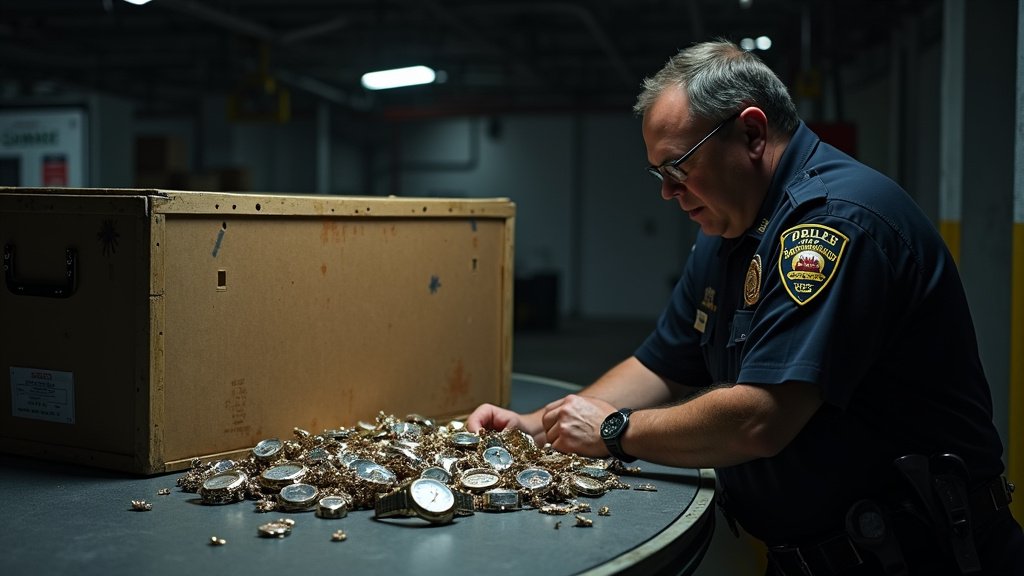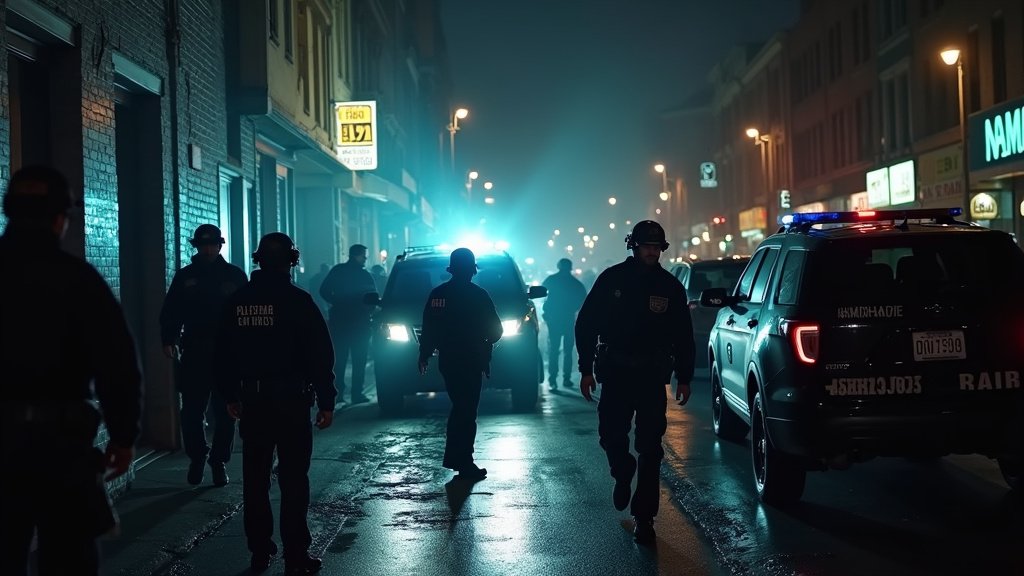LOUISVILLE, Ky. – U.S. Customs and Border Protection (CBP) officers at the Port of Louisville have intercepted a significant shipment of counterfeit luxury watches, seizing 160 fake Rolex timepieces valued at an estimated $2.57 million if they had been genuine. The discovery, made on November 17, 2025, underscores the ongoing battle CBP wages against the pervasive flow of counterfeit goods entering the United States.
Latest Interception at the Border
The substantial seizure involved a shipment originating from Taiwan and destined for a residential address in Houston, Texas. Upon inspecting the parcel, CBP officers identified the watches as inauthentic Rolex “Just Date” models, bearing protected trademarks. The items were subsequently deemed counterfeit by CBP’s Centers of Excellence and Expertise, the agency’s trade specialists. This interdiction is part of a broader, continuous effort by CBP to disrupt illegal trade and protect American consumers and businesses.
A Persistent Threat to US Markets
Counterfeit products, particularly high-value luxury items like watches, represent a significant and growing challenge for U.S. border security. In fiscal year 2025 alone, CBP reported seizing nearly 79 million counterfeit items, with an estimated Manufacturer’s Suggested Retail Price (MSRP) exceeding $7.3 billion. These illicit goods are often shipped through international mail and express consignment environments, making them difficult to track and intercept. Taiwan is noted as a source country for such counterfeit goods, though China and Hong Kong remain consistently high on the list of origin countries for intellectual property rights (IPR) seizures.
Counterfeiters increasingly leverage e-commerce platforms to distribute their wares, often advertising them at significantly lower prices than authentic items. This practice not only deceives consumers but also erodes the market share and brand reputation of legitimate U.S. and international businesses. The Port of Louisville has become a key hub for CBP’s interdiction efforts, frequently seeing seizures of counterfeit luxury goods, including jewelry, handbags, and watches.
Protecting American Consumers and Economy
The implications of these seizures extend far beyond the monetary value of the intercepted goods. Counterfeit products can pose serious health and safety risks, as they are frequently manufactured with substandard or hazardous materials, affecting everything from pharmaceuticals and cosmetics to electronics and children’s toys. Furthermore, the illicit sales generated by counterfeit operations fund transnational criminal enterprises, contributing to organized crime and other illegal activities. LaFonda D. Sutton-Burke, Director of Field Operations for CBP’s Chicago Field Office, emphasized the critical role CBP officers play: “Our CBP officers diligently work to protect honest and hardworking legitimate businesses by targeting and intercepting these fraudulent items. We continue to protect our community and the consumer from these unregulated counterfeit items that could potentially cause harm to our economy.”
CBP’s Evolving Enforcement Strategy
U.S. Customs and Border Protection employs a comprehensive, multi-layered strategy to combat the influx of counterfeit goods. This approach involves intelligence-driven targeting, advanced risk-management systems, and collaboration with intellectual property rights holders. CBP encourages brands to record their trademarks and copyrights through the e-Recordation program, which provides border patrol agents with the necessary information to identify infringing products. The agency also works with international partners and other federal agencies, such as through the National Intellectual Property Rights Coordination Center (IPR Center), to share intelligence and coordinate enforcement actions. The recent closure of the “de minimis” loophole further strengthens border enforcement by requiring all packages, regardless of value, to be reported to CBP, thereby increasing scrutiny on shipments from known counterfeit hubs.
Conclusion: An Unceasing Battle at the Border
The recent seizure of $2.5 million in counterfeit Rolex watches in Louisville serves as a stark reminder of the persistent threat posed by counterfeit goods to the U.S. economy and consumer safety. As counterfeiters adapt their methods, often utilizing the speed and anonymity of online marketplaces and express shipping, CBP remains on the front lines. The agency’s commitment to enforcing intellectual property rights at the border is crucial in safeguarding American businesses, protecting consumers from dangerous products, and disrupting the financial streams of criminal organizations. This ongoing news highlights the critical, yet often unseen, work CBP does daily to secure the nation’s borders and uphold fair trade practices.






